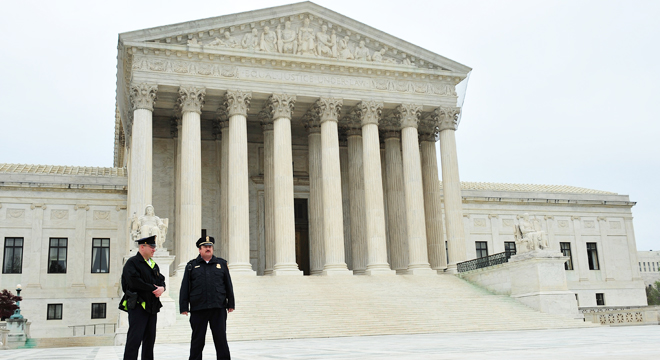Everyone knows the Supreme Court could strike down the entire health care law, or key pieces of it. But in addition to the huge impact such a move would have on national health care policy, the justices would also be fiddling with the country’s budget in subtle ways.
In its totality, the Affordable Care Act is projected by the Congressional Budget Office to reduce 10-year deficits by about $200 billion compared to what would have happened if the law never existed. That’s not a huge figure in the realm of long-term deficit projections, but if the Court zaps it the savings would disappear.
But it’s more complicated than that.
As Congressional Budget Office director Doug Elmendorf explained Wednesday, the court has other options, all of which prefigure different budgetary consequences.
“If the Supreme Court were to eliminate the mandate [it would] reduce the number of people who end up with health insurance to a significant degree,” Elmendorf told reporters at a breakfast roundtable. “It would raise the cost-per-person in the health insurance exchanges because those who stopped getting insurance would be disproportionately the healthier ones, so you’d have a sicker pool on average and that would be more expensive for the government, per person, in the exchanges. But fewer people would be in the exchanges, and fewer people would be enrolled in Medicaid. So on balance the federal government would save a few hundred billion dollars over the coming decade.”
In other words, from a strictly budgetary point of view, the Court would be improving the deficit by striking the mandate alone.
But in that event, the health insurance industry would put tremendous pressure on Congress to replace the mandate with something more clearly constitutional — and the legislation they’d be requesting would by definition increase budget deficits. This would make fixing the law even more difficult than it already would be, given the intense GOP distaste for the mandate and the rest of the ACA.
The Court could also decide to strike the mandate along with related guarantees that all people will be offered affordable insurance. That’s what the administration argued the Court should do if it determines the mandate is unconstitutional. But the budgetary consequences of that outcome are unknown.
“We have not produced any estimates of that,” he said.










